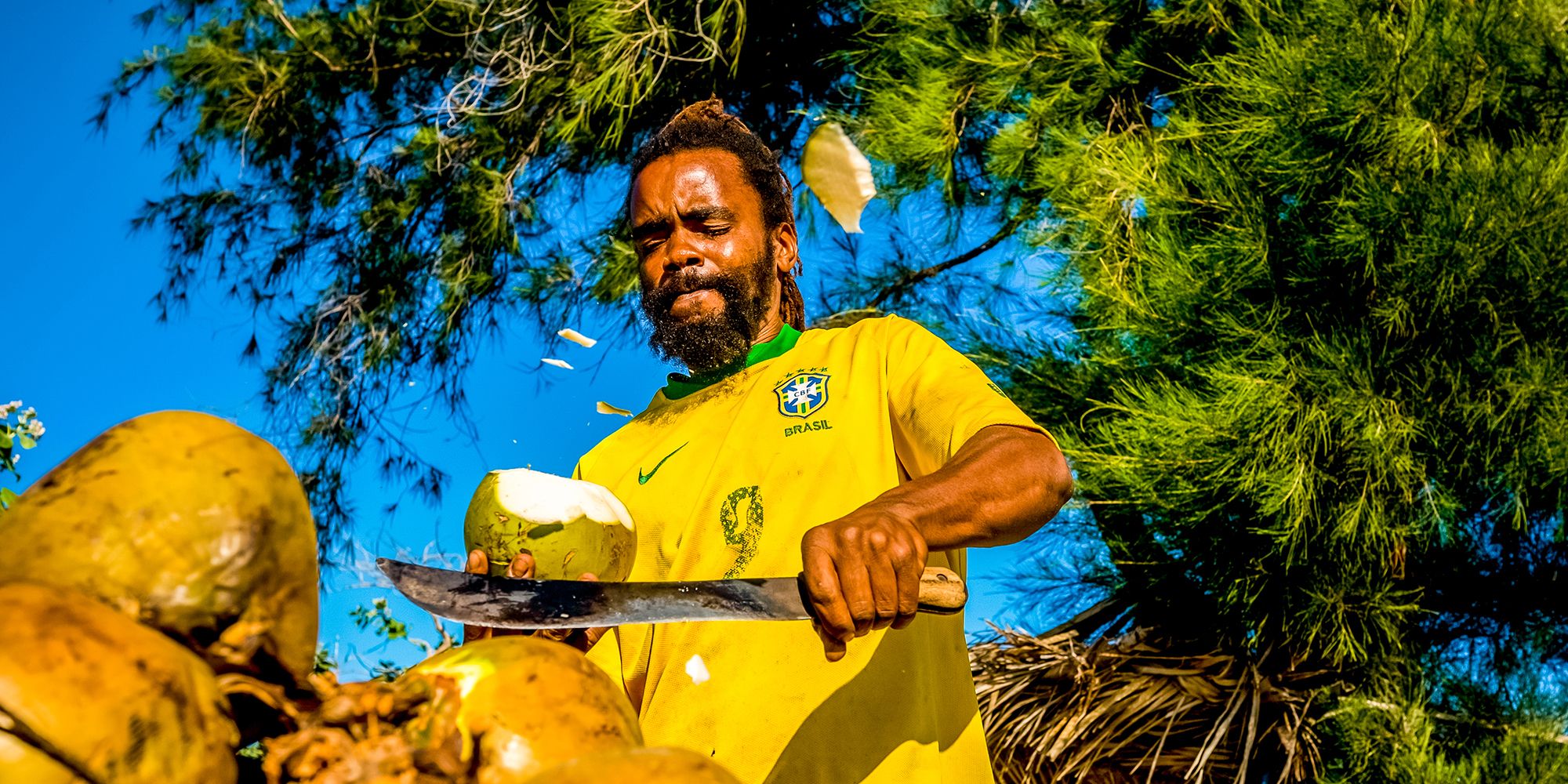Fresh Fruits of The Caribbean and How to Use Them
Here’s a challenge—name three fruits you may find in the Caribbean.
It seems easy enough. You pick three that sound like they belong in the islands or at a buffet in a Caribbean all-inclusive: banana, coconut, and mango. You would take your three points in the Foods of the World Trivia Game, and you'd be right to. After all, you've earned it.
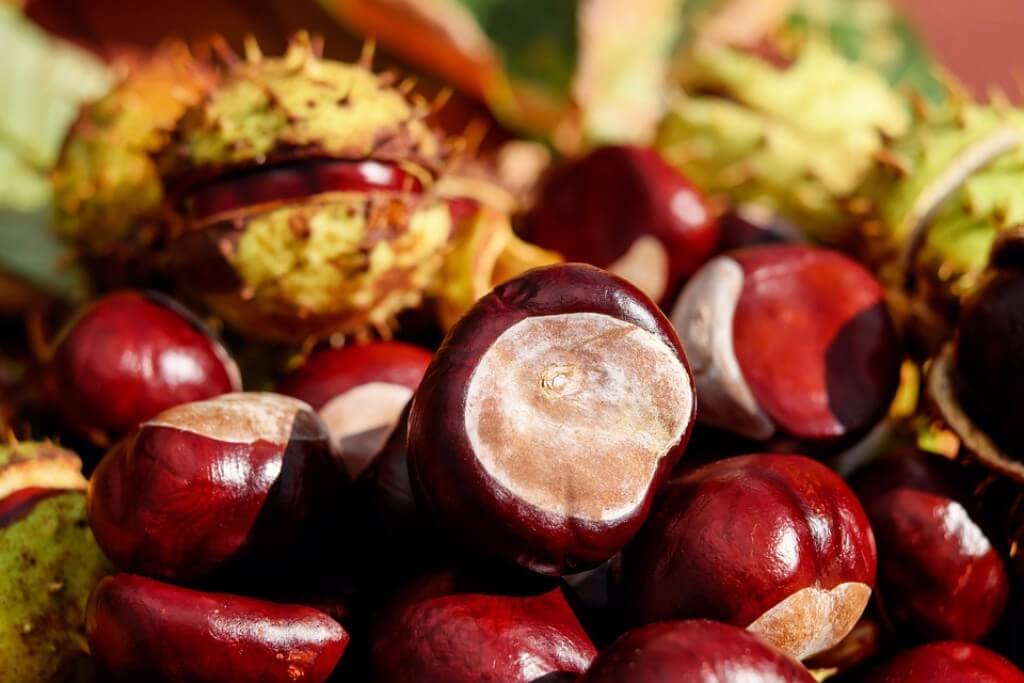
Banana, mango, and coconut are undoubtedly the staple fruits from the islands of the Caribbean. With sunshine all year round and just the right amount of rain, these fruits grow in abundance. If you look closely enough, you'll find them lined up on the shelves of your local supermarket.
It is not uncommon to be strolling along the white sandy beaches of Jamaica, and see locals scaling the palms to nab some coconuts to take home. Mango salsa makes the perfect accompaniment to many Caribbean curries, and how could we forget about barbecued banana?
These three come to mind when we think about the fruits of the Caribbean, but they're certainly not the only ones.
There's so many fruits of the Caribbean that you may never have heard of. We chose five to highlight, and as a bonus, we'll tell how to use them in your daily life.
Get those taste buds tingling, your fruit salad is about to get way more interesting.
1) Noni Fruit
Noni fruit is not only fun to say but it's also ultra healthy.
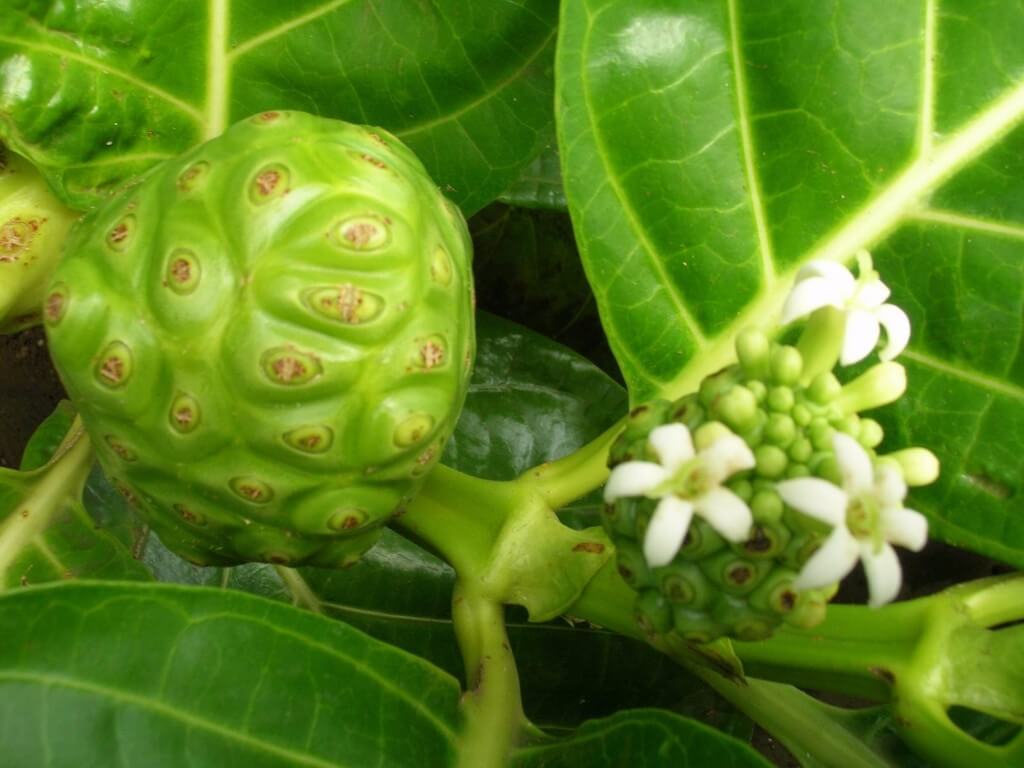
The health benefits of this small round fruit include lowered cholesterol and lower blood sugar. Believe it or not, noni is part of the coffee plant family. It's hardy plant that thrives in a tropical environment. While noni is a native Caribbean fruit, it's also found in Australia and many parts of South East Asia. Noni is also referred to as cheese fruit for its pungent scent when ripening.
Most popularly used on the island of Saint Lucia, noni is considered a tonic to help erase fatigue and give a natural energy boost when consumed as a freshly pressed juice. That said, if you have kidney problems steer well clear, you’ll find noni to be quite the opposite of a wonder-fruit for its high potassium levels could cause you some problems.
2) Mamey
Mamey really is a super fruit to add to your shopping cart.
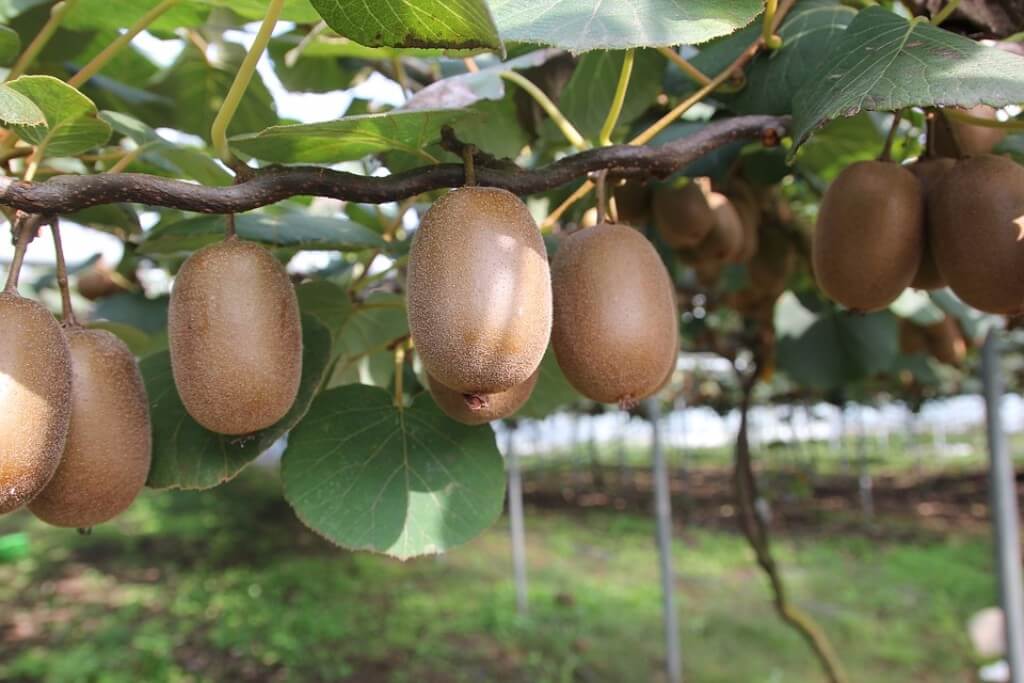
Ditch those multivitamins and substitute them for mamey—you won’t regret it. Mamey is high in vitamins A, B, and C and is rich in antioxidants, fiber, and beta carotene. It is also high in minerals like potassium, magnesium, and calcium.
The soft flesh of mamey varies from fruit-to-fruit, but burst open the hard exterior to find hues of salmon pink, berry red, or fiery orange. Mamey makes for a great topping to your morning smoothie bowl or a quick, sweet fix when you are on the go.
Ladies, listen up! Mamey is high in Vitamin E, and this little gem can help ease PMS symptoms cramps and cravings.
3) Soursop
No, it is not the latest gummy candy for kids. Soursop is like a baby durian.
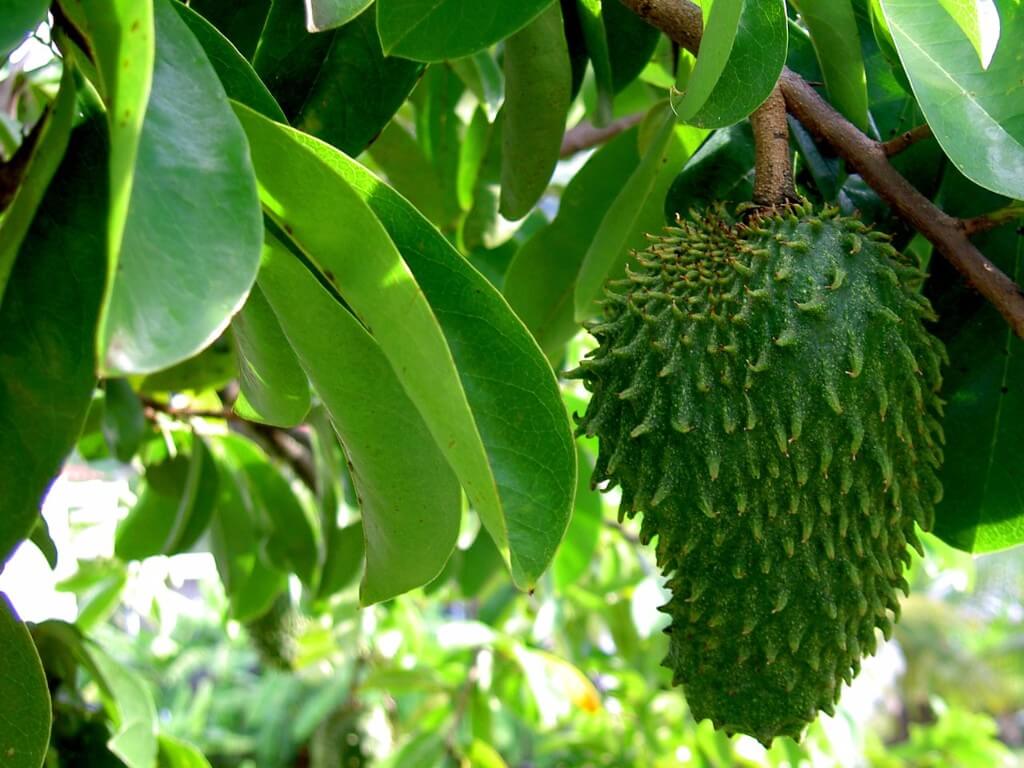
It's another Caribbean fruit packed full of health benefits that will have you racing to the grocery store.
In your mind, imagine a flavor combination of strawberry and pineapple with a subtle, creamy undertone and you’ve got yourself the taste of soursop. Native to the Caribbean and Central America, soursop is most popular in Jamaica. The best way to use soursop is to juice it.
If juicing is not your thing then why not try a soursop milkshake? Blend together a cup of milk, half of a soursop fruit with some ice, a touch of sugar, and a sprinkle of pistachio for good measure.
The health benefits of soursop include glowing skin, liver boosting properties, and help in the fight against inflammation.
4) Ugli Fruit
They say you should never judge a book by its cover and this is surely true of ugli fruit.
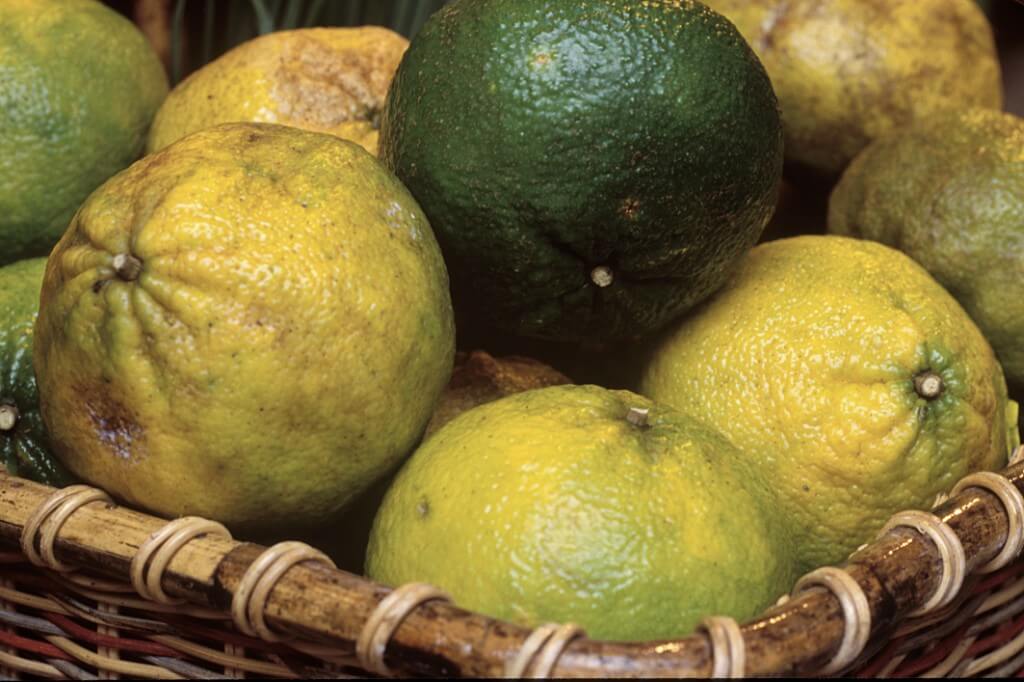
Despite the derogatory name, ugli fruit is super sweet. It's Jamaica’s own hybrid of the citrus fruit family, much like a tangelo. Don’t be put off by its unsightly exterior, there is a sweet and succulent center waiting for you inside the rind.
Ugli fruit is best used in a fruit salad or juiced to accompany your breakfast. After a workout, drink a glass of cool ugli fruit juice to help replenish electrolytes and sugars.
Just as you would with your oranges, lemons, and limes, ugli fruit is best when kept in the fridge. By keeping it cool, you can store it up to two weeks before it turns sour.
5) Ackee
Now, ackee you may have heard of. The classic Jamaican dish of ackee and salt fish features this very fruit and is another popular choice with islanders.
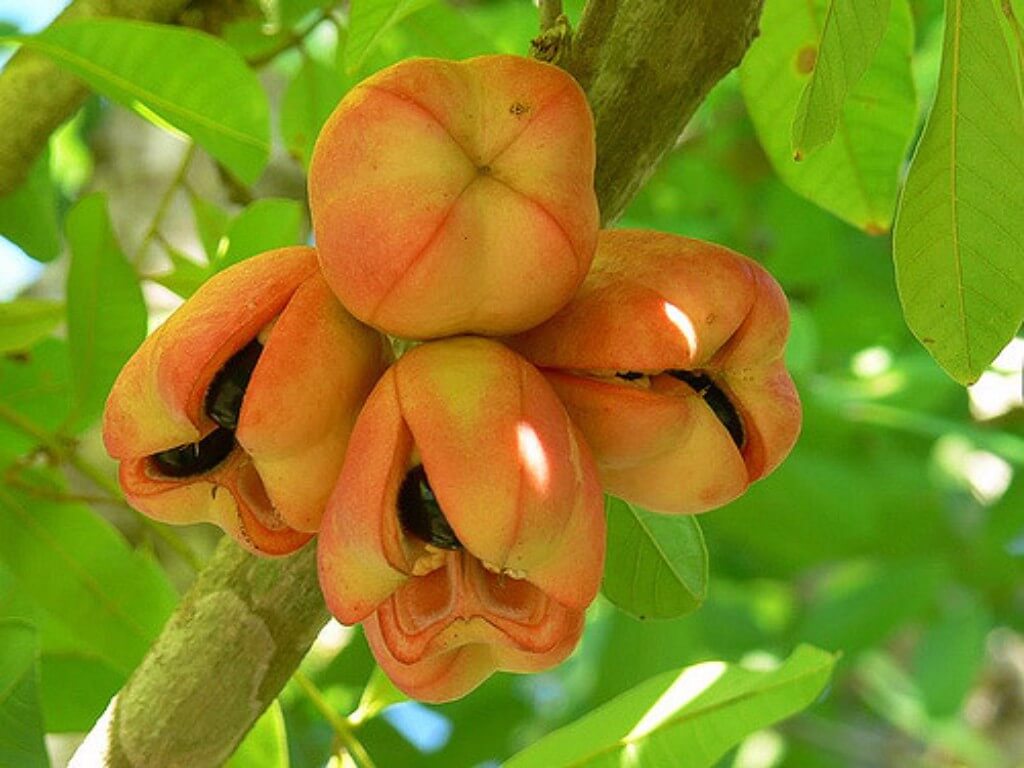
The name ackee has its roots in Africa and believed to have been carried to the Caribbean in the 18th century. Featuring pinky, reddish skin with three, jet black seeds inside Ackee has a more savory taste with a buttery texture, hence its compatibility with salt fish.
Ackee is another fruit of the Caribbean that has multiple health benefits. Stock up on ackee if you need natural assistance improving blood circulation, your immune system, and digestive efficacy.


